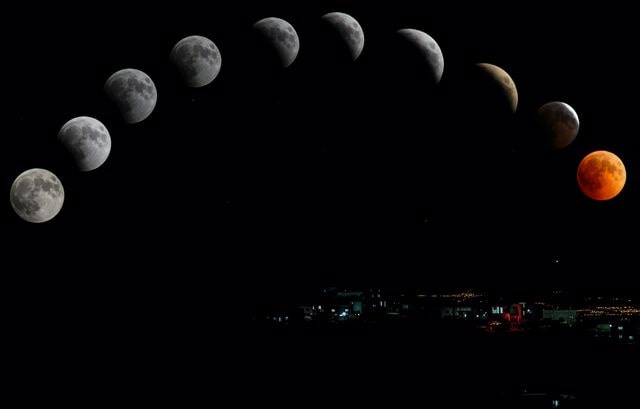The heavens are telling the glory of God; And the firmament proclaims God's handiwork. Day to day pours forth speech; And night to night declaries knowledge Psalm 19: 1-2
Psalm 19 begins with this celebration of how God is revealed in the world around us. From there, it moves to a celebration of how God is revealed in the written word (“The law of the Lord is perfect, reviving the soul; the testimony of the Lord is sure, making wise the simple…”). Most of us are comfortable with the idea of God being revealed in the word. We are, after all, “people of the book,” and we give ourselves to studying the word so that we can learn the truths and insights waiting for us there.
We are less comfortable with the idea that God can be revealed and experienced in the world around us. Perhaps we will acknowledge how the world around us can point us in the direction of God, but any knowledge that it gives us is incomplete and imperfect, unless combined with the written word.
But I wonder if we are doing justice to the psalmist with this stance.
After all, he gives equal value to both sources of experiencing God. Along with the many wonderful things he says about the written word, the images of the heavens telling the glory of God and pouring forth speech about God are strong and startling. If you want to experience God’s presence (not just ideas but presence) in a real way, by all means look into the word. But do not overlook the world around you: nature, environment, people, institutions, relationships. All of them can tell you as much about God as what has been written down about God.
And so, the world around us—in its wonder, its simplicity, its everydayness—becomes more than mere props for the real truth of the written word. Every encounter, every situation, every scene or setting has the potential to put us in touch with God’s presence in imaginative and playful ways. I want to share one of those moments with you.
I remember when I was inspired to write the following words. I was on my way home from an evening meeting at church (often a time when one needs inspiration). As I neared my house, across a field in front of me, was a beautiful full moon. It was a scene I had seen many times before, but for some reason I decided to listen to the “speech it was pouring forth.” I thought of the moon, and then the sun. After playing with these images, I learned something new about God. After playing with these images, I experienced something new with God.

God of the Sun, God of the Moon
God is like the sun.
I have often heard God spoken of in that way. And in many ways, it is true. The sun is bright, piercing light which illuminates all that is around me. The sun is powerful heat that gives warmth. The sun is the energy whose presence is the giver of life, as it nurtures our bodies and allows all around us to grow. The sun is the giver of light so that we may see and have guidance. In all of these ways, God is like the sun.
Yet the bright, piercing light can also be blinding. The sun’s heat can become staggering and oppressive. There are times of the year when people close their doors and turn on the cool air to avoid the sun’s heat. The sun’s life-giving energy becomes deadly when it parches the land and brings famine and hunger. The sun’s light can give guidance, yet if one looks into it directly, the result is a loss of sight. There is something very rash about the sun in what it gives and what it takes away. And many of us feel the same way about the Sun God.
Perhaps God is also like the moon.
A full moon looking down upon the land. The moon gives us soft light on which we can gaze intently, even taking time to look for the shapes of faces and other such nonsense on its surface (Personally, I’ve found one that looks like Dick Tracy). The moon does not overwhelm you or cry out for attention. Instead it just stays there…a sure, steadying presence that will be there every time you look up. Of course, many people are annoyed with that presence. We want it to do something like the sun. We want it to impress us or overwhelm us. Do something, but don’t just be there.

Yet that is exactly what the moon does. It goes on being…being there for us. There is something eerie and mysterious about the moon as it hangs there in the darkness. It is uncertainty, yet we are drawn to it. It changes shapes and moves through different phases. Sometimes it is barely visible. Other times it is not there at all, and all around us is darkness. Sometimes it is there in the middle of the day, and we have to look very hard to see it. Other times it may come later than usual in the evening, but when it does, it bursts onto the scene with an unmatched beauty and grandeur.
There is something gentle and caring about the moon; even when it is not there, you hope for its return. The only times we know the gentleness of the sun is when it enters and leaves the world…the times when it is farthest from us. The times when it is not forceful or obtrusive, but instead displays a gentle, moon-like attitude.
Yes, I prefer the God of the moon.
Others would not. They want the power and the overwhelming force of the Sun-God. They are not as comfortable with searching, changing, mystery, movement, or uncertainty in their God. They want God to always be there and to always be known, even if it is in an overwhelming and incomprehensible way. But surely much of life—and much of God—is not like the sun. Surely, much of life—and much of God—is like the moon.
